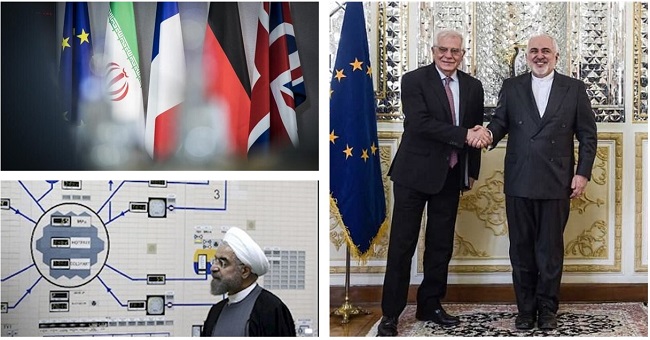Foreign ministers, who represent the three European signatories to the 2015 Iran nuclear deal, have responded last week when the mullah regime claimed that it had restarted with its uranium enrichment to increase to 20% purity, well beyond what is allowed according to the Joint Comprehensive Plan of Action (JCPOA).
Both Europe and the United States have shown that they have no interest in preventing Iran from continuing with its violations.
The People’s Mojahedin Organization of Iran (PMOI/MEK) reported: “Even though the US is still applying ‘maximum pressure’ by using economic sanctions…its European allies don’t show any interest in moving in that direction.”
United States Secretary General, Antonio Guterres, cited multiple breaches of the 2015 nuclear deal by Iran earlier this month, but the European Union has agreed that they will not set new preconditions on the deal, proving that they are set on the appeasement policy.
The action to resume the uranium enrichment comes 12 months after the regime gave up with all the restrictions it had imposed on its nuclear enrichment and stockpiling in 2016, when the deal was activated, as the MEK have previously reported.
The National Council of Resistance of Iran (NCRI) and the MEK reported that this latest escalation has particular significance because it places Iran’s nuclear facilities just one technical step away from more uranium enrichment in order to reach the 90% purity level, which would make any material produced of weapons-grade standard.
Additionally, the new enrichment is happening at Fordow, a well-known facility, which was selected to be the site for such activity due to it being built into a mountainside in order to evade any potential attacks.
The regime’s current president, Hassan Rouhani, and his foreign minister, Javad Zarif, are thought by the West to be moderates in Iran, which is why they were the ones negotiating with the West over the nuclear deal. But they have promoted and defended the actions and goals of their ‘rival’ faction, the ‘hardliners’, associated with Supreme leader Ali Khamenei. No such distinction exists, according to the MEK.
Rouhani’s previous career included a time he spent as the country’s chief nuclear negotiator, where according to his own words, he’d forestalled US and European pressures by creating an environment that showed cooperation, in order for the advancements regarding certain aspects of the regime’s nuclear program to continue while they were not being closely watched by outsiders.
The MEK advised that the mullahs continue to rely on extortion to achieve their belligerent goals. The regime’s notorious Islamic Revolutionary Guard Corps (IRGC), illegally seized the South Korean vessel, Hanguk Chemi, while it was in the Persian Gulf, in another attempt to get the international community to give in to its demands.
The purpose of capture and holding hostage of the chemical tanker is the regime’s hope for securing the release of money frozen in South Korean banks.
According to the MEK: “If Europe continues to steer itself away from reinforcing the consequences…the mullah regime’s principle of taking hostages will be reinforced, and even more foreign nationals will be taken by the regime as hostages to be used to bargain with”.
